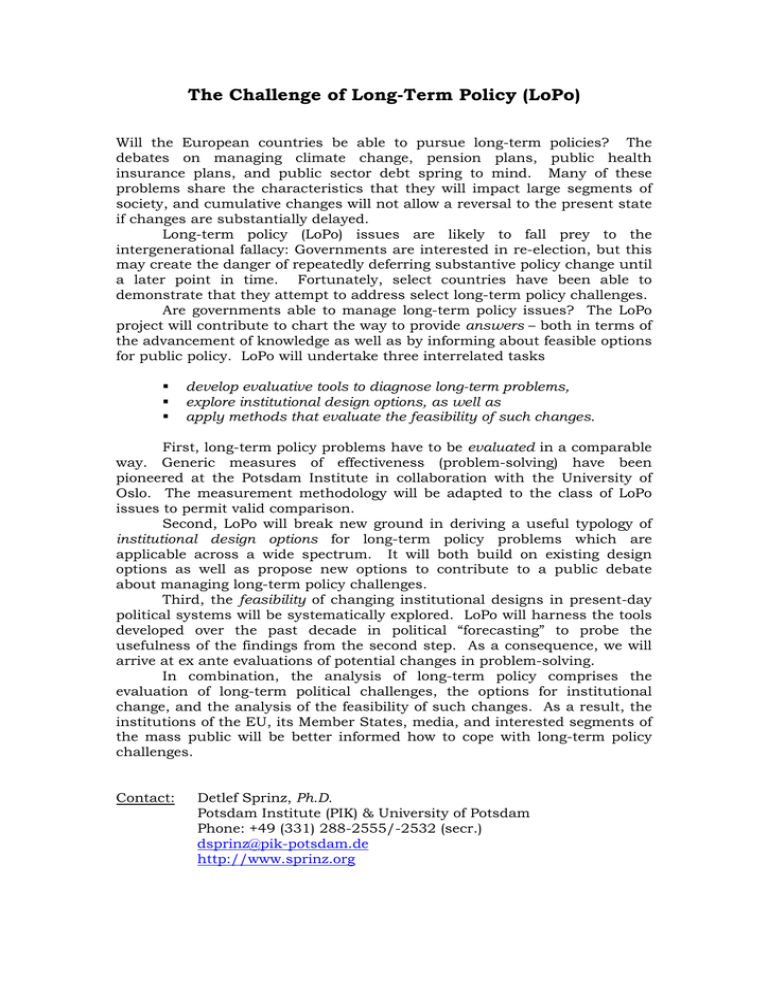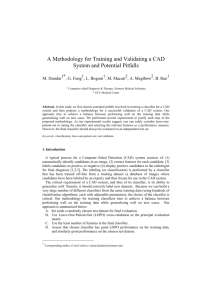The Challenge of Long
advertisement

The Challenge of Long-Term Policy (LoPo) Will the European countries be able to pursue long-term policies? The debates on managing climate change, pension plans, public health insurance plans, and public sector debt spring to mind. Many of these problems share the characteristics that they will impact large segments of society, and cumulative changes will not allow a reversal to the present state if changes are substantially delayed. Long-term policy (LoPo) issues are likely to fall prey to the intergenerational fallacy: Governments are interested in re-election, but this may create the danger of repeatedly deferring substantive policy change until a later point in time. Fortunately, select countries have been able to demonstrate that they attempt to address select long-term policy challenges. Are governments able to manage long-term policy issues? The LoPo project will contribute to chart the way to provide answers – both in terms of the advancement of knowledge as well as by informing about feasible options for public policy. LoPo will undertake three interrelated tasks develop evaluative tools to diagnose long-term problems, explore institutional design options, as well as apply methods that evaluate the feasibility of such changes. First, long-term policy problems have to be evaluated in a comparable way. Generic measures of effectiveness (problem-solving) have been pioneered at the Potsdam Institute in collaboration with the University of Oslo. The measurement methodology will be adapted to the class of LoPo issues to permit valid comparison. Second, LoPo will break new ground in deriving a useful typology of institutional design options for long-term policy problems which are applicable across a wide spectrum. It will both build on existing design options as well as propose new options to contribute to a public debate about managing long-term policy challenges. Third, the feasibility of changing institutional designs in present-day political systems will be systematically explored. LoPo will harness the tools developed over the past decade in political “forecasting” to probe the usefulness of the findings from the second step. As a consequence, we will arrive at ex ante evaluations of potential changes in problem-solving. In combination, the analysis of long-term policy comprises the evaluation of long-term political challenges, the options for institutional change, and the analysis of the feasibility of such changes. As a result, the institutions of the EU, its Member States, media, and interested segments of the mass public will be better informed how to cope with long-term policy challenges. Contact: Detlef Sprinz, Ph.D. Potsdam Institute (PIK) & University of Potsdam Phone: +49 (331) 288-2555/-2532 (secr.) dsprinz@pik-potsdam.de http://www.sprinz.org




